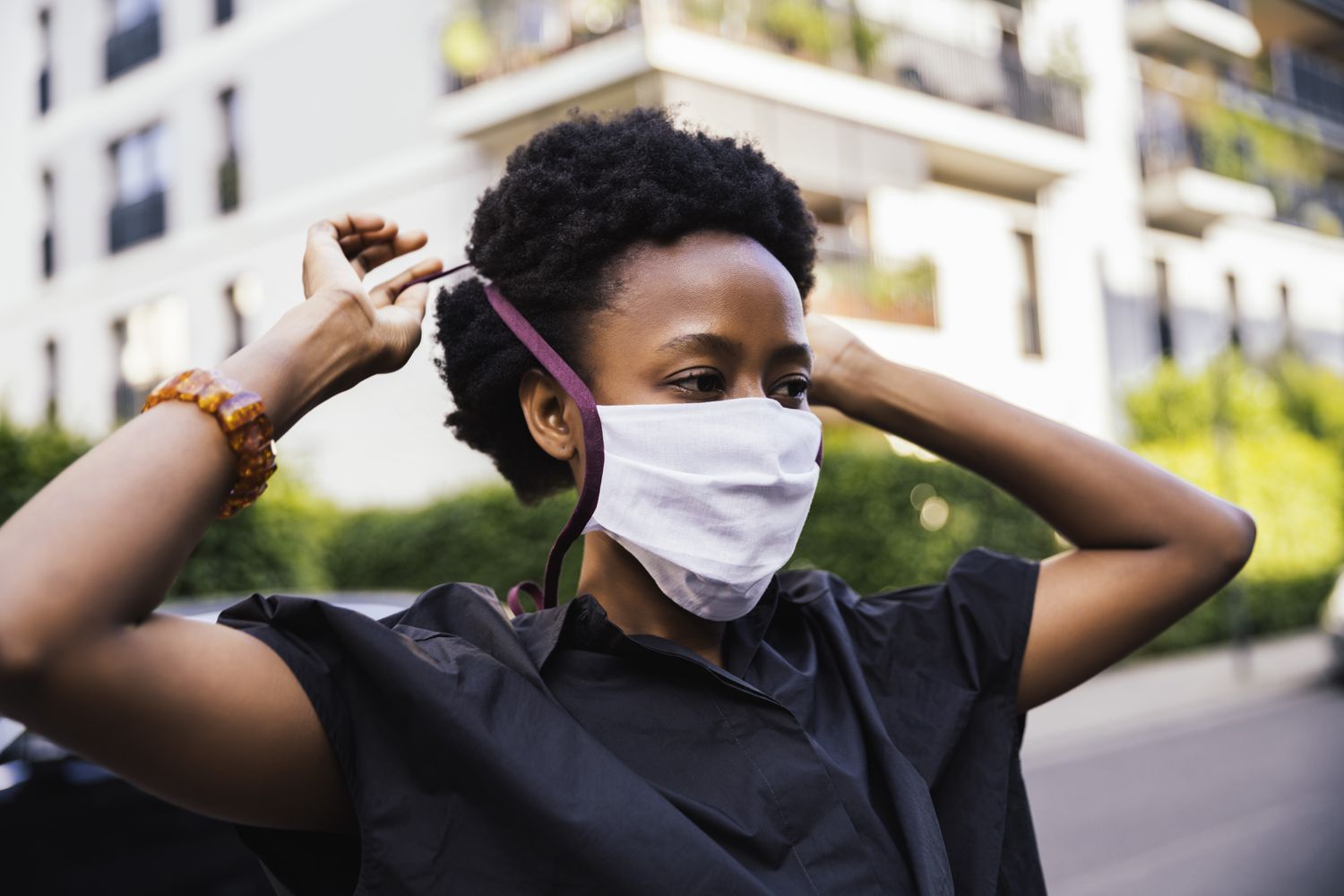
Food Allergies Linked to 50% Lower Risk of COVID-19 Infection, Study Shows
People with food allergies may have a 50% lower risk of COVID-19 infection, according to research published in the Journal of Allergy and Clinical Immunology. This finding comes from a National Institutes of Health-funded study that monitored over 4,000 people across 1,400 households between May 2020 and February 2021.

Woman wearing blue surgical face mask
Key Research Findings:
- People with physician-diagnosed food allergies showed half the risk of SARS-CoV-2 infection
- Asthma, eczema, and allergic rhinitis showed no increased or decreased COVID-19 risk
- Recent research from 2024 confirms that asthma may not be a risk factor for severe COVID infection
Potential Explanation: The reduced risk may be linked to type 2 inflammation, common in allergic diseases, which decreases airway ACE2 levels - the protein that SARS-CoV-2 uses to enter cells. This lower ACE2 presence might make it harder for the virus to infect cells.
Important Considerations:
- Having food allergies does not make you immune to COVID-19
- Continue following recommended prevention measures:
- Get vaccinated and stay up to date with boosters
- Wear masks when appropriate
- Practice good hand hygiene
- Avoid close contact with sick individuals
Study Limitations:
- Research conducted before widespread vaccination
- Does not account for newer COVID-19 variants
- Results may not reflect current infection patterns
Healthcare providers recommend that everyone, including those with food allergies, maintain COVID-19 precautions and follow CDC guidelines for vaccination, including primary series and boosters for those 6 months and older.
Related Articles
Cancer Deaths Drop in U.S., But Women Face Rising Diagnosis Rates

